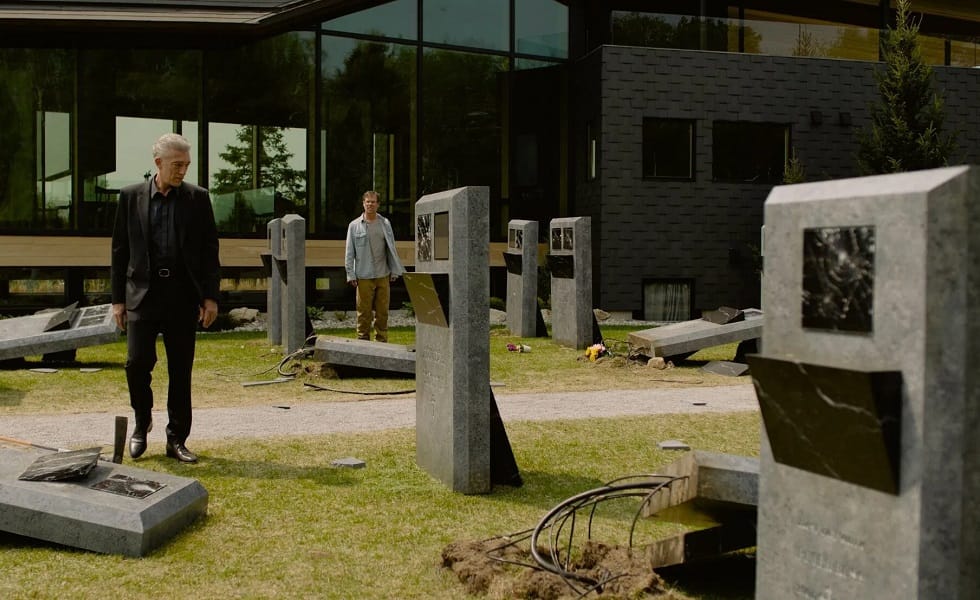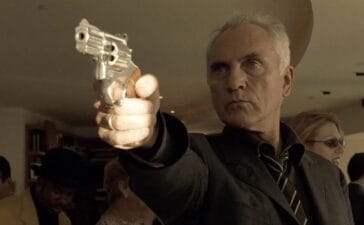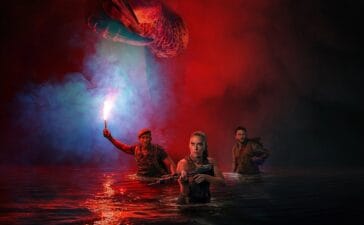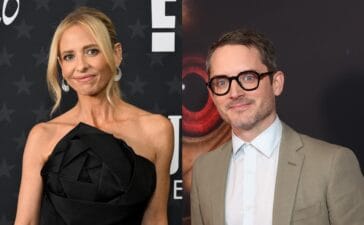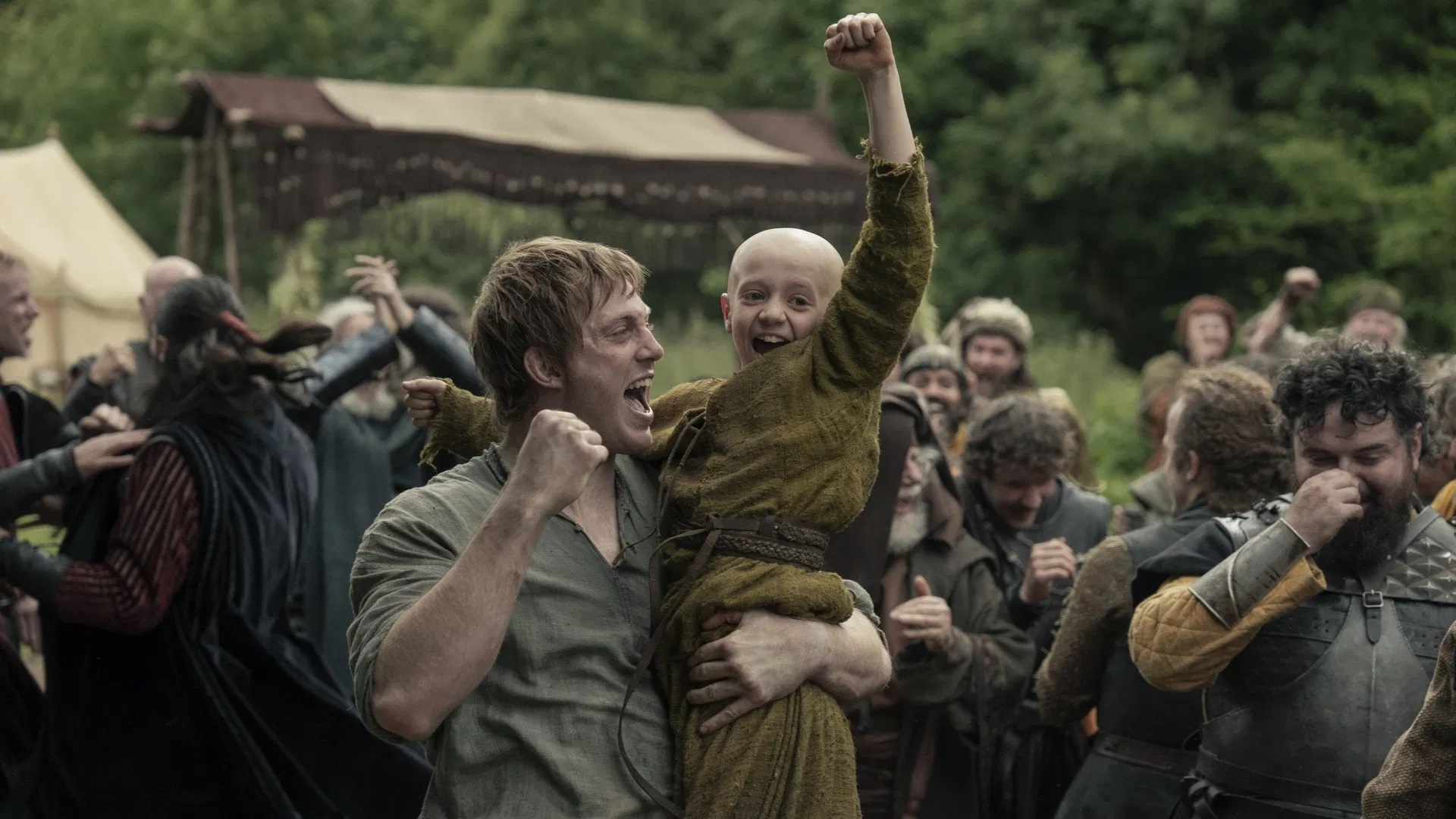There’s more than a hint of autobiography to the latest provocation from the Canadian auteur.
There’s always been more than a touch of autobiography to David Cronenberg‘s films.
That’s a wild assertion on the surface. It’s easy to cast your gaze over the assortment of mugwumps, mutant flies, psychics, and perverts (complimentary) that populate his work and dismiss it out of hand, but it’s true. Putting aside such valuable post-screening nuggets of trivia as the fact that 1980’s The Brood was inspired by his own bitter divorce, Cronenberg has always been chasing… something. His own concerns about life, death, and the trauma of existence have always been writ large, albeit wrapped in metaphor.
In The Shrouds, the metaphors are paper-thin. The philosophical question of how to cope with being thinking meat – a Cronenberg fave – crashes into the personal question of how to deal with overwhelming grief. Conceived of and made after the death of Carolyn Zeifman, Cronenberg’s wife of almost 40 years, it’s deeply fascinating film – and a deeply affecting one.
Our hero, for want of a better word, is Karsh, played by Vincent Cassel. With his shock of silvery hair and his quiet affect, he even looks like Cronenberg. When we meet him, he’s screaming. The first words we hear are his dentist telling him his grief is so profound, it’s rotting his teeth.
That grief stems from the death of his wife Becca (Diane Kruger) a few years back. Karsh is not coping. He’s embarked on an affair with her twin sister, Terry (Kruger again). He’s had his tech guy, Maury (Guy Pearce) whip up an AI assistant, Hunny (third time’s the charm) based on Becca’s personality. And he’s founded a company, GraveTech, which is where things get more traditionally Cronenbergian.
GraveTech markets the titular shrouds, devices that broadcast a live, 3D image of a buried body as it decomposes, allowing the bereaved to really get face to face with the death – the quantifiable, post-mortem part of the process, at least. There’s no promise of an afterlife, no soft-sell reassurances about “rest” or “peace”. There’s just the body. And the rot.
Onto this is appended an industrial sabotage plot as GraveTech comes under attack, its proprietary tombstones destroyed, its data systems hacked, but that’s really just there to provide some narrative breadcrumbs to follow. The real meat of the matter is Karsh and his anguish.
Cassel’s performance is superbly understated as he navigates his trauma, maintaining a calm, controlled demeanour but letting us glimpse the emotional turmoil inside from time to time. The Shrouds asks provocative questions: how do we grieve? Why do we? And how do we live in the aftermath? It may, arguably, be short on answers, except one: we must. Somehow, we must.
The Shrouds is in cinemas now.


